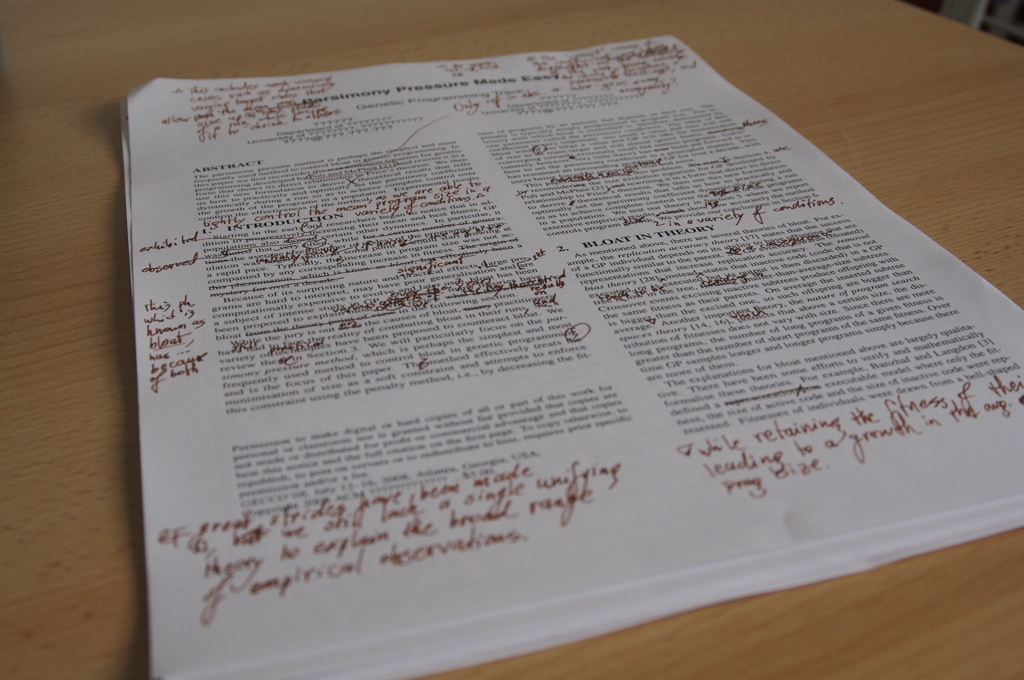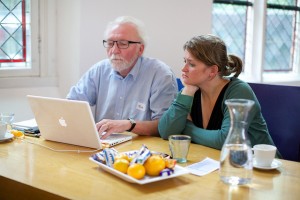
Catch your mistakes before your editor does with these proofreading tips!
Photo by Nic McPhee (Flickr)
While nobody’s perfect, many of us can take more steps to find our mistakes. One of the most important ingredients in this recipe for success is time. Proofreading takes time; the process shouldn’t be rushed, or else errors will almost always be present. One quick re-read isn’t quite enough. Here are some proofreading tips for catching more mistakes.
Read It Backward
This is a fast way to proofread if a writer is short on time. Read each sentence, starting from the bottom of your work and working your way up to the beginning. This forces you to take your sentences out of context, reading each word individually without focusing on what you had intended to say. After you’ve read your piece backward, you can read it in its proper order to make sure your changes make sense.
Read it (or Have it Read to You) Out Loud
This is another trick that forces you to slow down. It’s great for finding misused words, bad pluralization, and odd-sounding sentences. If you’re alone, you could read it to yourself. However, one of my favorite ways to proofread is to have the computer read my work back to me. I can listen to the robotic voice recite my work as I read along. The soulless program simply doesn’t care about what I had meant to write. Most Macs and Windows machines feature a screen reader. This is to help the blind and those with disabilities use computers, but it’s easy to manipulate for proofreading purposes.

Photo by Raheel Shahid (Flickr)
Take a Break and Come Back
Distance yourself from your current project, work on something else for at least five minutes, and then come back before proofreading. If you rush from completing a project to proofreading a project, you’ll still have what you intended to say in your mind. This will give your brain the opportunity to do what it naturally does so very well: skip mistakes in the text and infer meaning. It’s almost like we want the content to be void of errors, so our brains shows us what we want to see. Spending some time away will allow us to forget what we had meant to say. A short break can help us to read not to see a self-fulfilling prophecy but for comprehension.
Concentrate
Make sure your space is devoid of noise and distraction. While proofreading, your work should get your complete attention. Being able to catch mistakes requires focus. Turn off music, minimize your Web browser, and take a few solid minutes to do nothing but read.
Proofread for One Type of Issue at a Time
You could proofread in phases. One phase might include focusing solely on spelling or misused words. The second run might focus only on grammar. The third could focus on whether or not you followed all of the instructions on the assignment. Everyone notices certain types of errors first. Multiple readings could gradually increase in difficulty, from searching for obvious mistakes to finding more subtle issues.
Print It Out
Many people tend to skim when reading on a computer. It may be because there is just too much information on the Internet to spend a lot of time individually reading each word (hence the “tl;dr” — “too long, didn’t read” — phenomenon). Printing out a copy of your work allows you to slow down, focus, and examine each word. Grab paper and a pen. It’s a longer process, but for many people, it’s well worth the ink.

Photo by Sebastiaan ter Burg (Flickr)
Have Another Set of Eyes
Nothing beats having another person read your work. It’s almost always going to improve your results. In addition to reading on your own, have someone else give it a go. They don’t have to be editorial wizards, either. Most people can find sentences that sound odd or words that shouldn’t be there. This person is valuable because they’re coming to your work with no context.
What are your proofreading strategies? Do you have a secret for success? Share it in the comments below!
